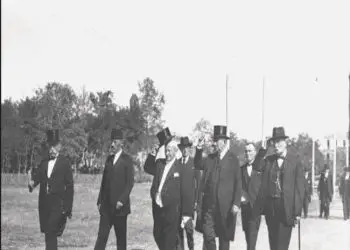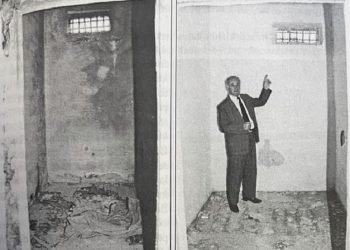By Sven Aurén
Translated by Adil N. Bicaku
Part fifteen
ORIENTI EUROPE
Land of Albania! Let me bend my eyes
On thee, thou rugged nurse of savage men.
Lord Byron.
In the book “Orient of Europe”, the author of the work is the Swede Sven Aurén. They are impressions of traveling from Albania from the ‘30s. His direct experiences without any retouching.
In a word, the translation of the book will bring to the Albanian reader, the original value of knowing that story that we have not known and we continue to know it, and now distorted by the interests of the moment.
Now a little about what these lines address to you: My name is Adil Bicaku. I have worked and lived for over 50 years in Sweden, without detaching for a moment, the thought and feeling from our Albania.
I am now retired and living with my wife and children, here in Stockholm. Having been for a long time, from the evolution of the Albanian language, which naturally happened during these decades, I am aware of the difficulties, not small, that I will face, to give the Albanian reader, the experiences of the original.
Therefore, I would be very grateful if we could find a practical way of cooperation together, to translate this book with multifaceted values.
Morally, I would feel very relieved, paying off part of the debt that all of us Albanians owe to our Albania, especially in these times that continue to be so turbulent.
With much respect
Adil Biçaku
Continued from the previous issue
SEVEN CUPS OF COFFEE IN “KURSAL”
With fiery red hair and bold twisting of her buttocks, the Greek waitress sails in front of the “Kursal” tables and brings customers hot coffee and strong brandy. “Kursal” is located in front of the building of the red two-storey prefecture and consists of a small American-style house, with respectively a terrace and a garden inserted like a wedge, between two streets. Ornamental trees are slender, palm and burnt flowers, which bend their leaves, towards the bright sand to seek protection from the sun. The public is Tirana, which means something. Here is the courtyard of the meeting of the political party, with the worshipers. Here gather intriguing and parasitic men, deceitful and honest. It is a coming and going, whispering and muttering, a strange chorus of whistling voices and laughter, secretly fast. People watch tina, how much left to right, listen, try to prevent others from listening.
The air shakes from real politics and along with amateur politicians. It is as if the leaves of the palm trees were large ears, to be extended over the tables, to catch as much as possible of these mystical decisions and secret agreements. Even my desk seems to me to have a cunning and utterly secret look. They bend to the left, so that I can understand what those three officers are saying, nearby. In this overcrowded atmosphere, the Greek waitress moves around, like an uncrowned queen. Her mouth is red violet, she laughs with vests adorned with gold chain and beautiful uniforms. Not against anyone. She has come from Athens, to succeed in Albanian love and thinks of opening a cafe, when the pile of gold reaches quite high.
Slightly opposite me, the mayor of Tirana, Rexhep Jella, is sitting. Most of the thousands of acquaintances are called “Monsignor”, in case the brilliance is not appropriate. Rexhep Jella, prefers to be titled “Mister”. He has lived for a time in Oxford and adores everything English. He dresses like an Englishman, smokes with a pipe and has built his own house, in the English style. He has started the construction of an underground center, suitable for the personal needs of the population, under the Boulevard “Mussolini” according to the model of the one, which is under Trefalgar Square. In a few months it will be over. As prefect Mr. Jella, has an important position, roughly compared to her a Swedish district mayor. Apart from her, he is a film censor in Albania and has a fair share of judges. He assured my lady by repeating several times:
-If anyone against any assumption addresses you on the street, then tell me immediately. I have the right to punish the culprit, up to one month imprisonment. I will use my right.
Not far from Mr. Jella, is sitting a bayraktar, who has come down from the northern mountains. Thanks, gentlemen up there, for leaving the country, for such a man in Europe of republican hats and standard suits! He is tall and handsome and the white mustache, give full contrast effect, with brunette skin. He has a white cap on his head and on his white sheepskin clothes, he has the black sleeveless glass of the highland population, where the embroidery with braids, looks like festive parades, on his broad shoulders. Around the abdomen, there is often a red belt and in the middle of the belt, a white pistol butt is distinguished. The white butt has its own history and its own meaning. King Zog has donated, these beautiful weapons, with royal initials, a limited number of strong friends, as evidence of gratitude and interest. This is a psychological calculation, very good chess.
A brilliant decoration on these old bayraktar clothes, would give a parody impression. With a pistol is another job. This puts the dot on i, in the bayraktar dress and fulfills with much pride, the warlike owner than a hundred decorations. This says even more about what he wears, than all the adjutants’ uniforms and braids, which shine everywhere here between the Kursal’s tables. The pistol is in itself an entrance ticket, permanent to the King’s residence.
The bayraktar table is near the sidewalk. In it go as far back and forth, four impressive types of fighters, with shooters in their pockets. They are the bodyguards of the great bayraktar, who watch for bloodthirsty adversaries and who accompany the bayraktar wherever he goes and at night guard outside his door.
Sitting next to him sits his son: a young lieutenant, in an elegant uniform and with polished boots. This young officer was educated in a French military academy and thanks to his father’s name, sees a brilliant avenir in his military career. He knows the girls in nightclubs in Montmartre’s and Montparnasse’s. This old bayraktar has not seen anything else from the world, except the Alps of his province and the streets of Tirana. It is a common disagreement, instead between the new generation and the old one.
A blue car, coming slowly and a healthy gentleman in European attire, comes out of the sleigh. He is Lala, Ahmet Zogu’s closest friend, after the death of the Queen Mother. Lala has lived in the Zogu family since his youth and plays an important role. The talkative languages say that he is the “ear” of the Royal Family. He is in this cafe every day and is received with great respect. When he enters, dozens of gentlemen get up from different tables, rush forward and kiss his hand. This old man smiles contentedly, pushes religion back and sits in that society, which to him at the moment, seems most useful in the political sense. He sits there without moving an hour, accepts tickets, listens and it is a few words. The waitress bows when she receives the order. He is the only visitor she bows to, but because Lala, too, is the most powerful unofficial representative of the Royal Family.
In addition, the cafe is full of officers, MPs and former MPs, civil servants and private intriguers. Occasionally a minister comes in, drinks a cup of coffee, observes the terrain, and disappears. Hardly anyone gets poorer, from this kind of coffee life. Four cups of coffee cost 1 crown, a few glasses of brandy, disregard, a little more.
Now the sun begins to set, but the political discussion continues to buzz, in the garden of “Kursal”. You can also believe that Albania is governed from here, as if the orders start from here and the decisions are implemented. But this is a rather hasty thought. Just a hundred yards from here, King Bird is at his villa and deciding what to do. In “Kursal” decisions are discussed, they arouse enthusiasm and bitterness, they choose for or against. Here intrigues are spun and intrigues are discovered. As in all new states, the government has a half and a whole bunch of professional politicians to deal with. If they do not carve the railings in prisons and for full state, he finds these professional complainants again in the yard of “Kursal”. But King Zog, is a very wise man, to leave his opponents, free field of action. For this reason, so many government believers meet in this cafe, a number of low-ranking politicians, but also strong men, both with brains and hearts. And therefore the “Kursal” is a sure starting point for him, who will be informed about the state of foreign and domestic policy of the country.
From table to table, Monsignor X goes and greets.
Monsignor X is a disgusting, filthy little thug, who no one really knows what his name is but everyone knows who he is: a blackmailer and treacherous murderer who, for a convenient payment, receives over almost everything. He is dressed in the excess of a western suit, in which trousers are cut to the appropriate length. His hands are as small as a twelve-year-old, but sharp and strong, as if made to grab him by the throat.
The laugh on the crooked and disgusting face is of an angel, undefiled and pleasant. Those little eyes emit sparks of evil. Monsignor X, has an ideal image of the murderer in infidelity and adaptation to the profession, does not stand in the outward appearance. This seems a lot from the way he is expected by the customers of “Kursal”. He strokes from one to the other, caresses his face and says a kind word to each. Monsignor X is a force factor and you should be comfortable with it. Otherwise you have to be careful with the food and be careful not to go out after dark.
The Greek waitress sails towards my desk:
-Encore I tasse de cafe?
Violet red mouth opens with a seductive laugh. A foreigner, who comes to Tirana, must be an eccentric millionaire. How can it be otherwise, the absurd idea comes to him exactly like the trip to Tirana?
As the garden shadows get longer and longer, I order another cup of coffee, the seventh in an hour, I believe. It’s a weird look that I have in front of me. Above these low palm trees and the flat roofs of houses I see those mountains blue, with the white peak. The intrigues of a bee that has come out of the hive resound around the circle. And in front of my lame desk, stands Monsignor X and fixates on me with a curious expression with non-sympathetic eyes.
It’s better to go and pet her on the cheek.
Eqrem Bej Vlora, is sitting at my desk and we are talking about the former Albania and Albania now, about the steps of progress and the planned progress, about the complicated situation of the country, in terms of foreign policy. Vlora, is in his fifties, short in body and has a beautiful face, with obvious youthful features. He is one of those people who always look ten years younger than they really are. It can be very enjoyable when a person enters middle age, but in the young days, it is a difficult obstacle.
Vlora, as I said, has crossed the half-century mark, but at the age of 27, he had a very special reason, to curse the childish physiognomy. It was 1912, a very important year, when the first independence of Albania was declared, under the leadership of Ismail Qemali. Together with his father, Syrja Beu, the young Eqrem worked, with hands and feet, to realize the dream of Albanians for independence. As a member of the richest family in Albania, whose palace in Vlora is still one of the objects of the country worth seeing, he had great opportunities to be asked.
He had received an excellent education in foreign universities. He knew Albania better than most of his countrymen, as he, with a devout group around him, undertook a journey of research on horseback, from the south of the country to the north. His higher education and good connections led him to be sent on very important missions, to establish contacts with foreign powers on behalf of Albania’s goal for freedom. He successfully fought against those Greeks who, in early 1912, entered Himara.
Albanians did not spare words of praise in terms of his ability, progressive spirit and intelligence, but when it finally seemed that freedom became a reality, they did not want to take it really seriously. Eqrem Vlora looked young. There was no beard! The latter in particular, weighed heavily at Eqrem’s disadvantage. According to the naive opinion of Orientalists, knowledge runs parallel to the beard, a result of the idea, that it is a great shame, for an old man to be put under the subordination of a young man. Because of this oriental prejudice, there has always been and still is, to some extent, some old age and clumsiness. The fresh force of youth is not being used properly.
So if this cute round face prevented then Eqrem Vlora, to take the position in the government of the country, whose merits and preconditions, should have given him the right, now he at the most mature age, has recover compensation for damage caused. He has covered a number of ministerial posts and is now one of Albania’s biggest names. He is also the most Europeanized citizen of the Monarchy. This has brought the great advantage that it does not allow to be used, as otherwise in Albania, usually tend to embellish the political situation, embellishments, which from time to time, give such a drastic childish appearance, that it directly affects the high purpose patriotic.
So now, we are sitting here talking about Albania. What else would Vlora better talk about, when “he had the privilege of meeting a foreigner, who has come this long and arduous way, to seek knowledge of a forgotten place”?
-If you knew me a little better, you would know that I do not like praise, he says. I have been quite a lot abroad, to keep the proportions in mind, when I talk about the Albanian situation with foreigners, very civilized. But still, is not it quite strange, how much has been achieved during the eight years of the Albanian Monarchy? To begin with, we have pacified the place. With a few small exceptions, we have almost stopped the people from carrying weapons, and whatever that means, in order to take the rifle from the Albanians, I do not need to explain it better. Yet we have. In defense of the population and the maintenance of order, we have organized a strong police force with the help of the English, a very effective gendarmerie. Complete safety reigns in the country roads. You can travel wherever you want and no one will bother you.
Of course it is possible that my fellow citizens sometimes may have a part of the accounts with each other, but the stranger is always left alone. Now I want to point out that those attacks on foreigners that took place before were actually inspired by poverty and hunger. We have never had that kind of crime, like many great and respected countries that still continue to have it today. We respect the stranger because he is our friend, so he is under the protection of hospitality. Those laws that deal with hospitality are as strict as those that apply to blood feuds. There are generally no attacks today. There is no foreigner who has traveled to Albania in recent years, who is not ready to sign for this. / Memorie.al




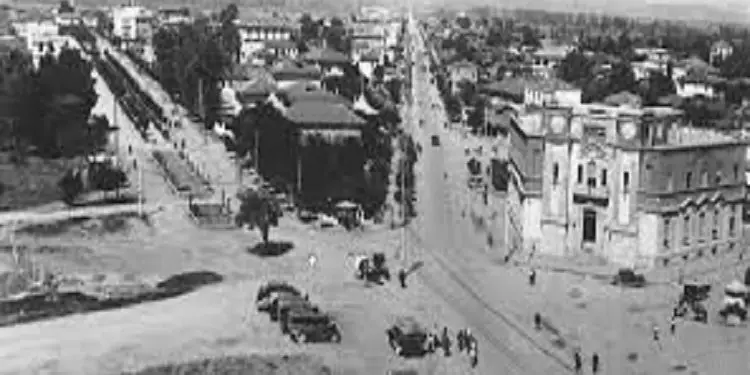
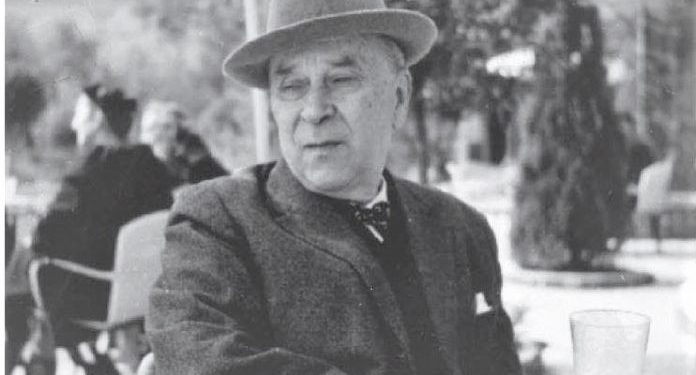
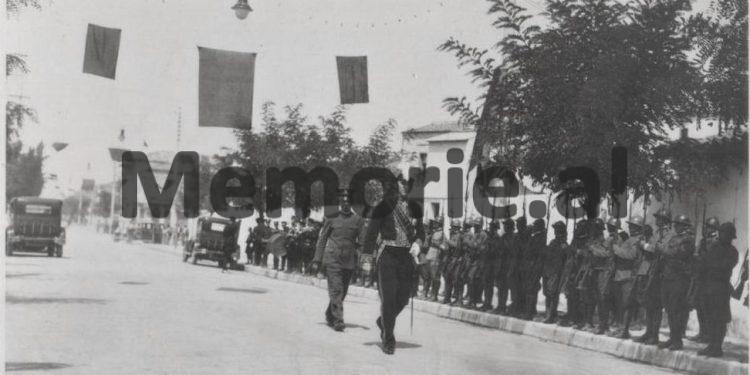
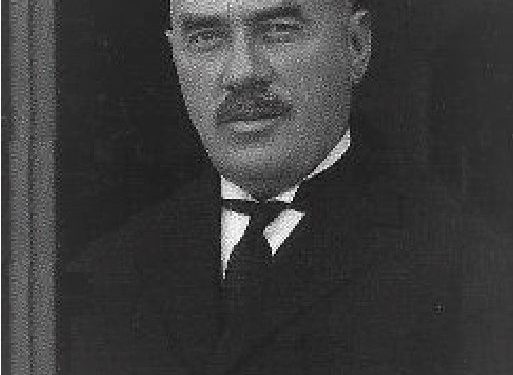
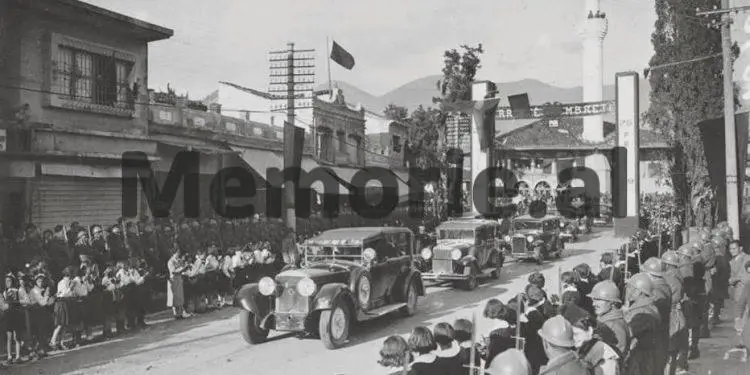
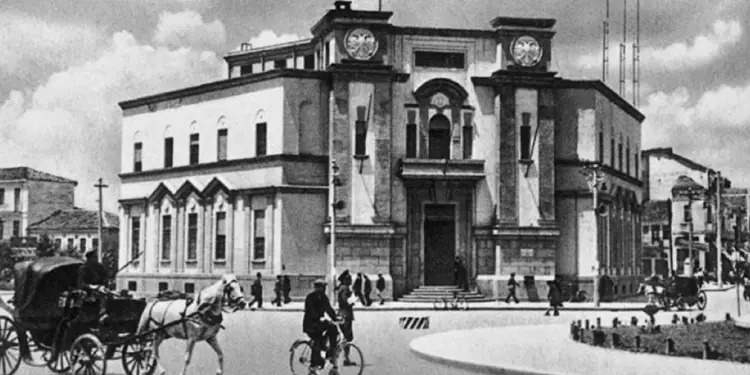
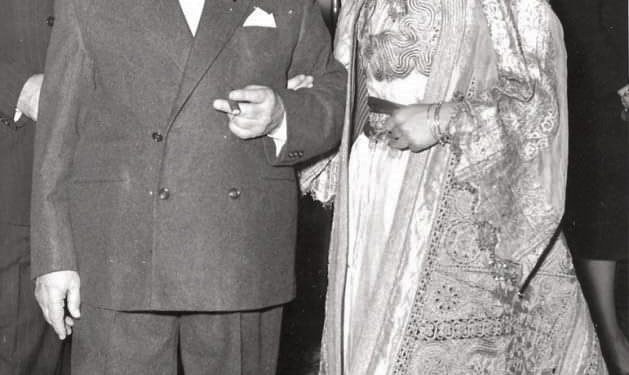
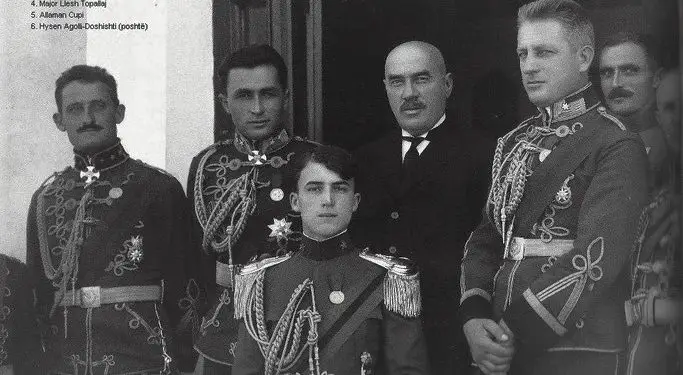
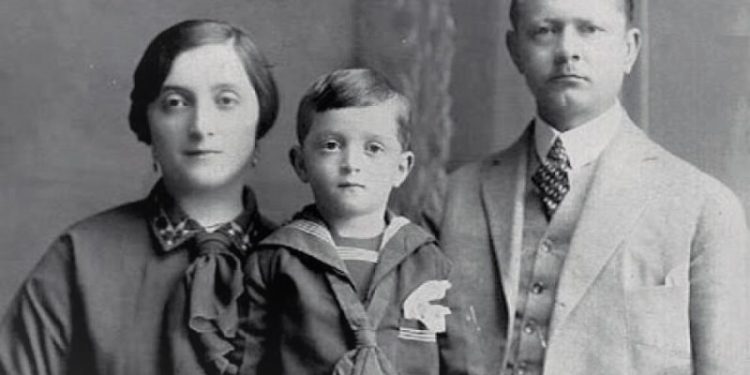
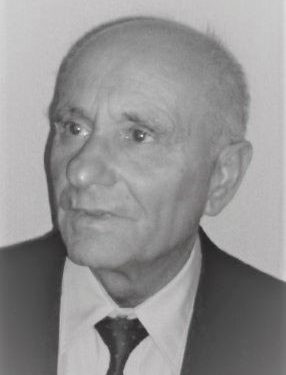


![“After the ’90s, when I was Chief of Personnel at the Berat Police Station, my colleague I.S. told me how they had once eavesdropped on me at the Malinati spring, where I had said about Enver [Hoxha]…”/ The testimony of the former political prisoner.](https://memorie.al/wp-content/uploads/2024/09/admin-ajax-4-350x250.jpg)
